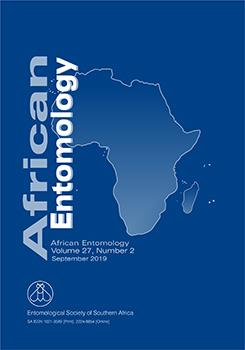Essential oils extracted from plants provide an efficient and eco-friendly alternate to manage the challenge of mosquito-borne diseases. The use of these oils as larvicidal agents, however, poses the problem of their improper dispersion in larval aquatic habitats. To overcome this, the methodology for the synthesis of Eucalyptus globulus oil nanoemulsions in water was standardised by mixing the oil in water with Tween®-20 in three different ratios (1:1, 1:2 and 1:3) by sonication. On the basis of thermodynamic stability tests, oil emulsions having E. globulus oil and Tween®-20 in 1:2 ratio was found to be the most stable which was characterised using transmission electron microscopy (TEM). The droplets of prepared nanoemulsions were found to have an average size of 40 nm and were spherical in shape. The larvicidal activity of stable aqua nanoemulsions of eucalyptus oil was tested against Aedes aegyptiusing five different concentrations at 100, 90, 80, 70, 60 and 50 ppm (in triplicate). LC50 and LC90 values were found to be 60.30 and 92.20 ppm. Observations revealed that 70 ppm was the most effective concentration, causing 100 % mortality within 24 h.
How to translate text using browser tools
4 October 2019
Synthesis and Testing of Eucalyptus globulus Oil-Based Nanoemulsion for Its Larvicidal Potential against Aedes aegypti
N. Kaur,
D.K. Kocher,
A. Sidhu
ACCESS THE FULL ARTICLE
It is not available for individual sale.
This article is only available to subscribers.
It is not available for individual sale.
It is not available for individual sale.

African Entomology
Vol. 27 • No. 2
October 2019
Vol. 27 • No. 2
October 2019
essential oil
mortality
mosquito
mosquito control
vector




